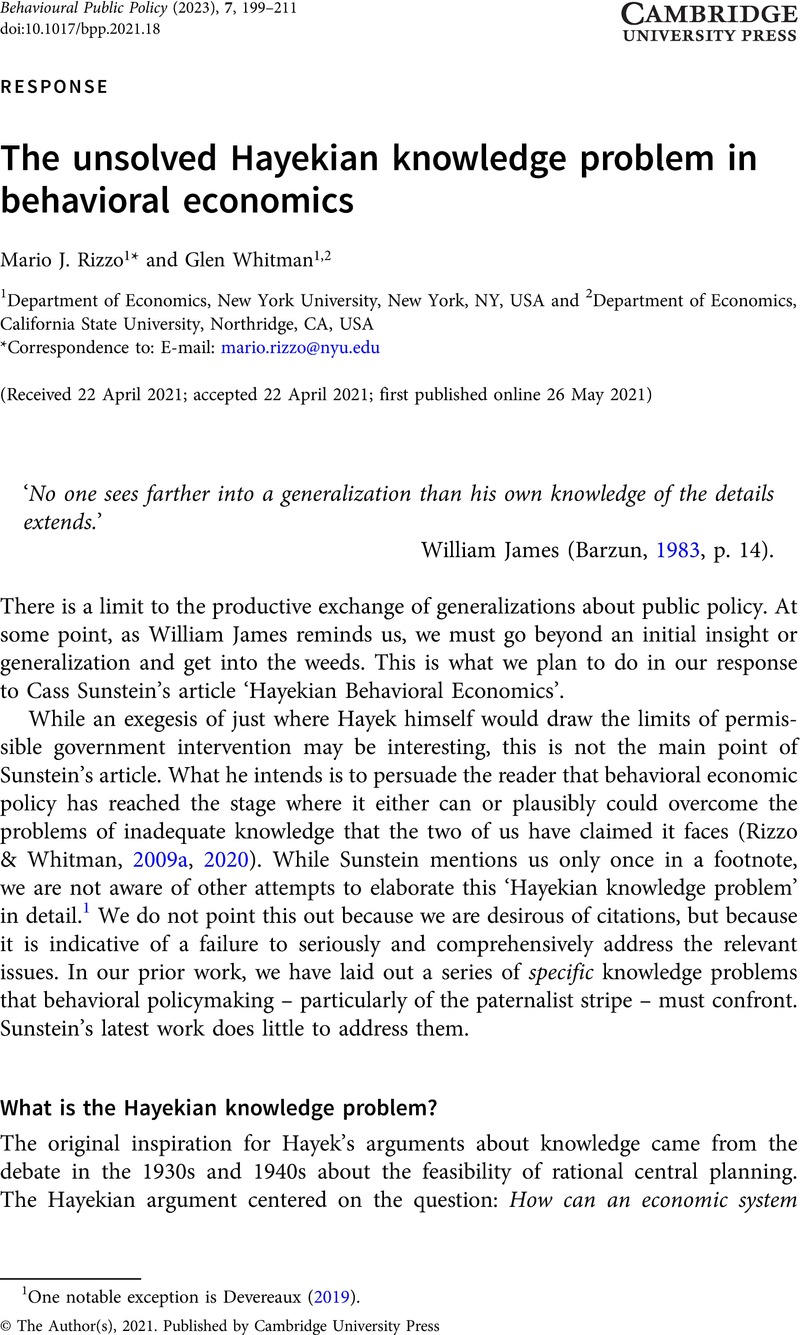Crossref Citations
This article has been cited by the following publications. This list is generated based on data provided by Crossref.
Rizzo, Mario J.
2021.
The Paternalistic Turn in Behavioral Law and Economics: A Critique.
Review of Law & Economics,
Vol. 17,
Issue. 2,
p.
253.
van Emmerick, Elias
and
Dold, Malte
2022.
Opportunity, not Welfare: How Behavioral Insights Should Lead to a Reorientation of the Normative Foundation in Law and Economics.
Journal of Contextual Economics – Schmollers Jahrbuch,
Vol. 142,
Issue. 1,
p.
21.
Braganza, Oliver
2022.
Proxyeconomics, a theory and model of proxy-based competition and cultural evolution.
Royal Society Open Science,
Vol. 9,
Issue. 2,
Dold, Malte
and
Rizzo, Mario
2024.
Hayekian psychological economics: a preliminary look.
Behavioural Public Policy,
p.
1.
Dekker, Erwin
and
Remic, Blaž
2024.
Hayek's extended mind: on the (im)possibility of Austrian behavioural economics.
Journal of Institutional Economics,
Vol. 20,
Issue. ,





